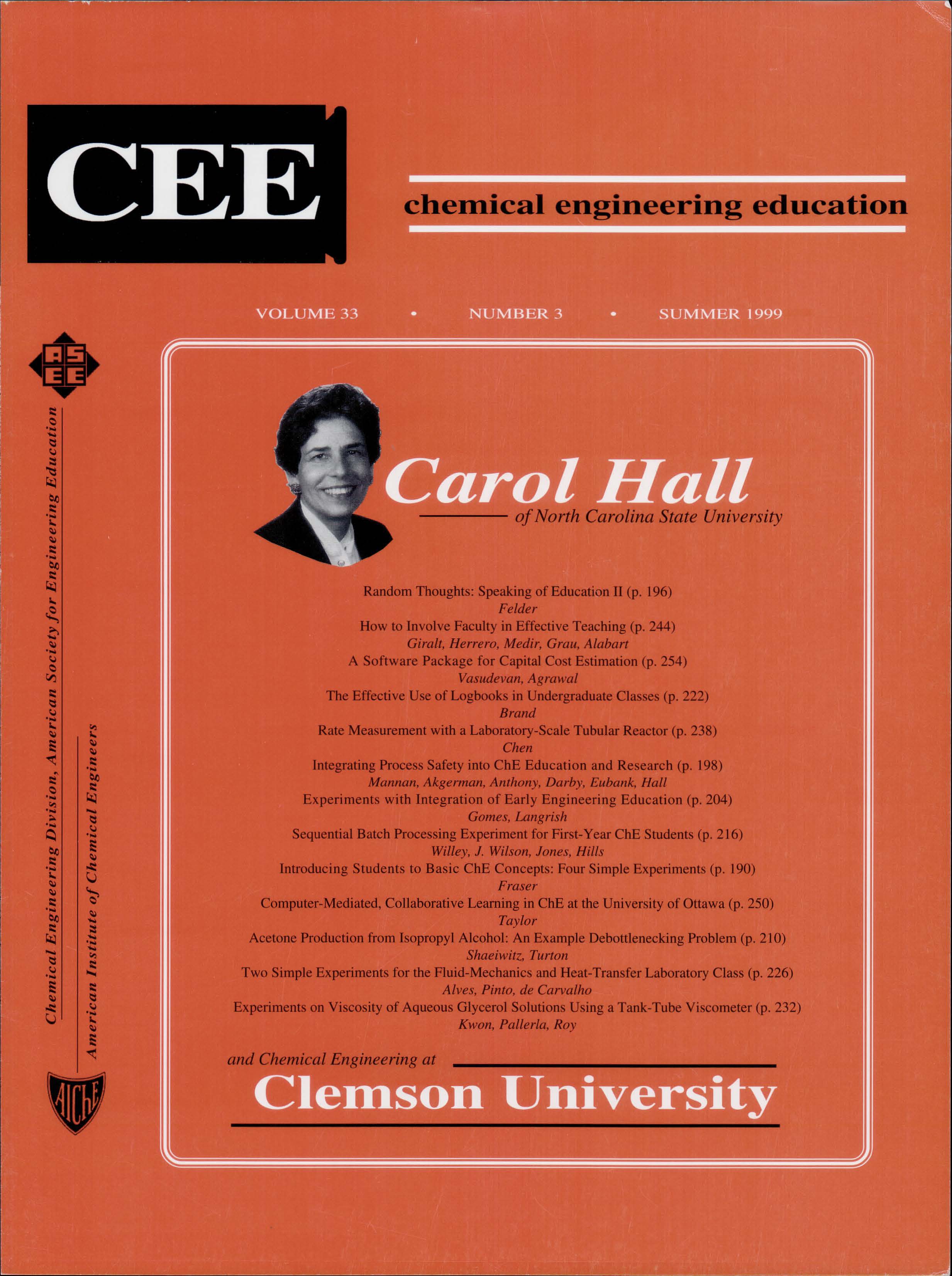Sequential Batch Processing Experiment for First-Year ChE Students
Abstract
Batch processing is an important aspect of chemical engineering; yet experiments designed with direct emphasis on batch processing are few and far between. This paper reports on the results of running a sequential batch experiment operated by first-year ChE Students. The experiment was repeated twice in each session; first automatically and second manually. The experiment involved a 400-liter vessel in which two reactants, A and B (both were water for this experiment) were added in the correct sequence. Then heating followed to 55°C by using a steam jacket. The batch was held at this temperature for ten minutes, and afterward, cooling to 40°C by a cooling water coil ensued. When the batch finally reached 40°C, it was transferred to the next step in the process (the drain, in this case). Students are exposed to several important ChE principles, including energy balances and automated data acquisition. They also gain an appreciation of automatic-versus-manual control of batch processes.


